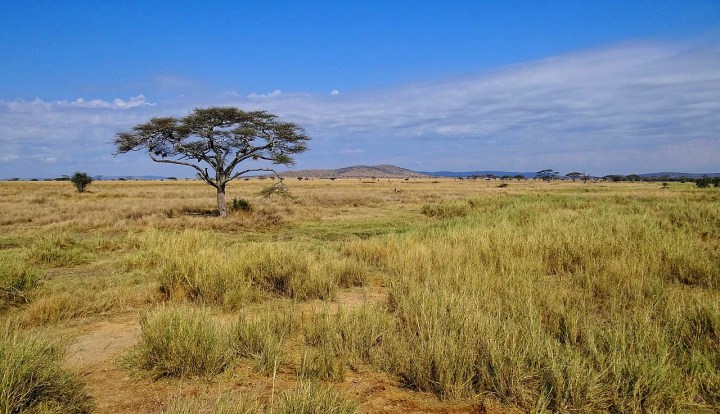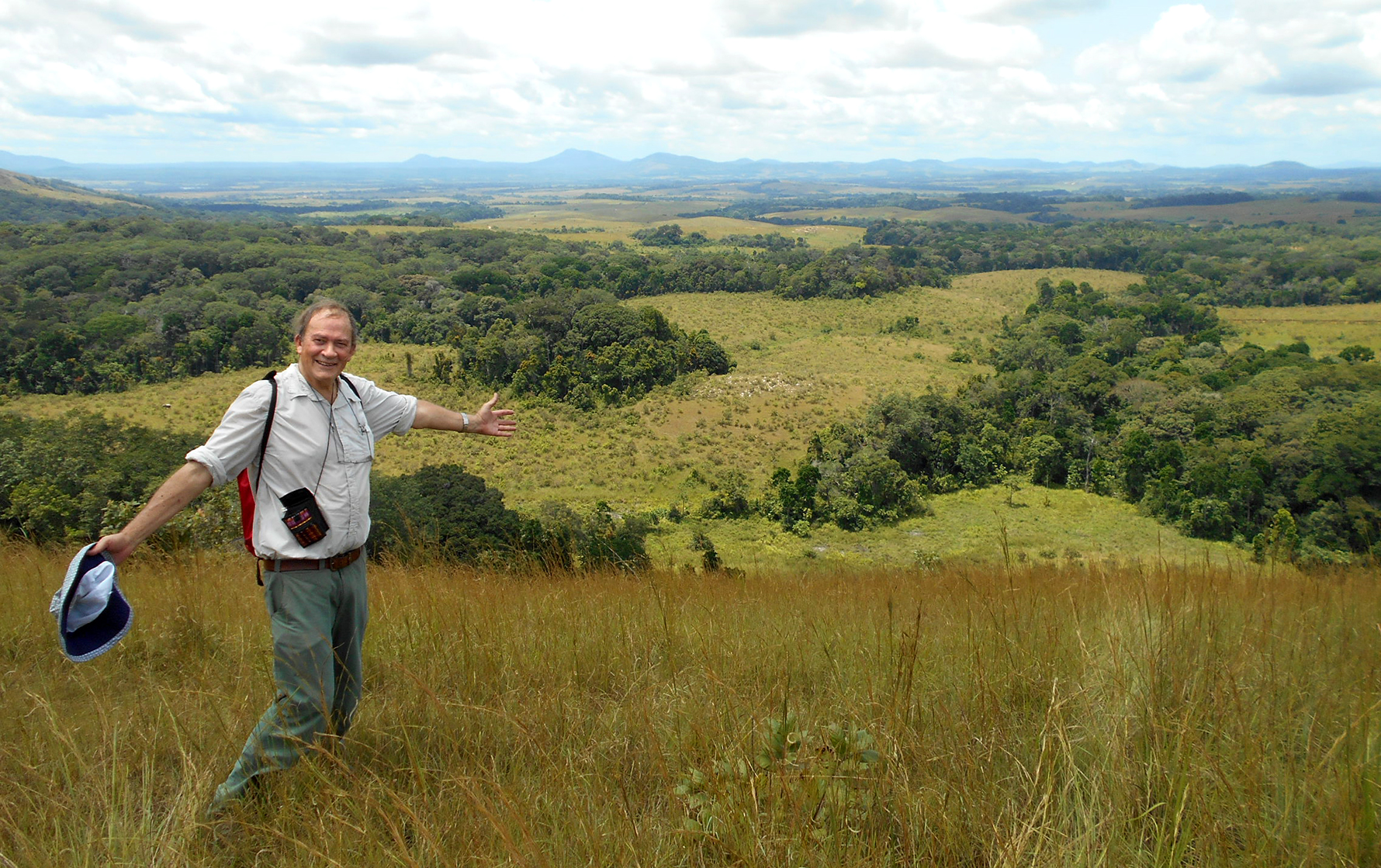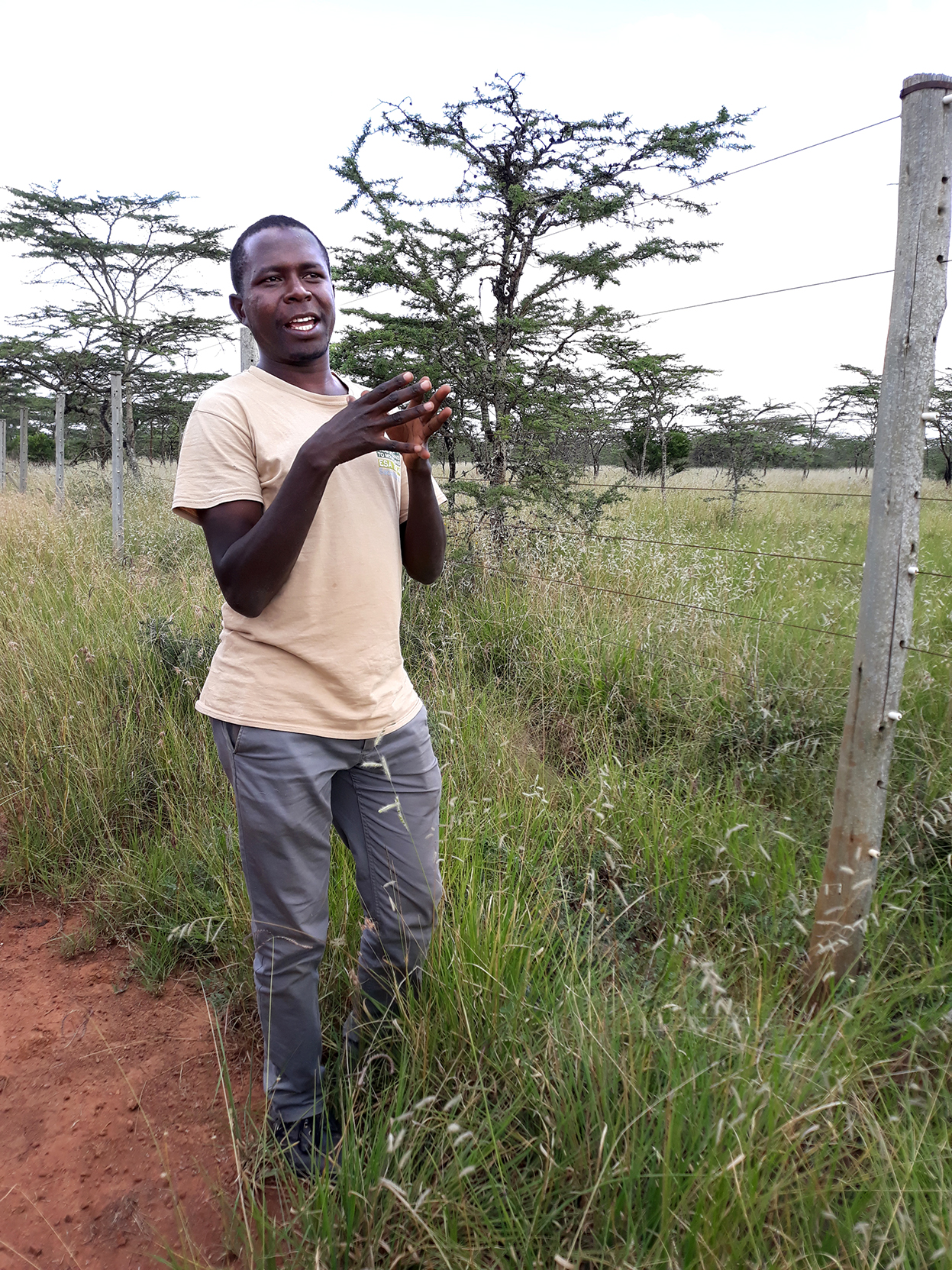ROVING REPORTERS
Why a ‘fetish’ for forests might imperil conservation efforts

Although trees help combat climate change by removing carbon dioxide from the air and releasing oxygen into the atmosphere, the positive impact of mass tree planting programmes has been grossly exaggerated.
The best time to plant a tree was 20 years ago. The second best time is now. Well, that’s how the adage goes. But what if we’ve got it wrong?
What if planting trees is not the panacea for climate change it’s often touted to be? And what if, under certain circumstances, the planting of trees does more harm than good?
These are questions ecologist and biogeographer Prof William Bond would like more of us to begin asking.
He is critical of what he views as a “fetish for forests”, which he fears distorts conservation efforts, particularly when the wrong kinds of trees are planted in the wrong places, like Africa’s savannahs and grasslands.
He also warns that this tree-planting frenzy provides industrial polluters with a convenient fig leaf. It lets them continue to spew carbon dioxide into the atmosphere in return for payments to commercial programmes that ostensibly offset emissions of the climate change-inducing greenhouse gas, by planting CO2-consuming trees.
An ecologist with a special interest in savannahs and fynbos, Bond was speaking at the latest Oppenheimer Generations Research and Conservation Tipping Points webinar titled, “Managing African grassy biomes: challenges and practice”.
The Tipping Points series brings together thought leaders and researchers on the last Thursday of every month to address key issues affecting development and the environment in Africa.

Prof William Bond in the grasslands of Lope Park, Gabon – a 5,000 square kilometre Unesco World Heritage Site consisting of rainforest and grassland savannahs. The western lowland gorilla and countless other mammals and bird species have found refuge in this diverse landscape. (Photo: Supplied)
Sharing the panel with Bond on 31 August were Dr Duncan Kimuyu, a senior lecturer in the Department of Natural Resources at Karatina University, Kenya, and Dr Heidi Hawkins, a plant physiologist, ecologist and researcher at Conservation International and the University of Cape Town.
Hawkins and Bond said that while trees helped combat climate change by removing carbon dioxide from the air and releasing oxygen into the atmosphere, the positive impact of mass tree planting programmes has been grossly exaggerated, and is misleading and incorrect scientifically.
The World Economic Forum launched its Trillion Tree Initiative in Davos in 2020. Rolling Stone magazine subsequently published this article, “Why Planting Trees Won’t Save Us”, that exposed “the magical thinking around the trillion trees initiative”.
Flawed
Bond said equally flawed thinking applied to the African Forest Landscape Restoration initiative founded in Durban by a group of 10 African countries, each committing to restore a certain number of hectares of degraded landscapes within their borders.
AFR100, to use its acronym, has since included in its stated aims, bringing “100 million hectares of land in Africa into restoration by 2030”.
Hawkins said these tree-centric initiatives ignored grasslands and how extremely important they are for carbon sequestration.

Dr Heidi Hawkins is a researcher specialising in the cycling of carbon and nutrients in grasslands, savannas and shrublands. (Photo: Supplied)
She said many people did not realise grassy ecosystems were a more reliable carbon sink than forested ones.
She said this was because forests, especially tropical forests, store most of their carbon above ground, where they are vulnerable to fires and harvesting.
In contrast, grasslands store as much as 50-70% of their carbon in the soil. Below-ground carbon includes plant roots, but most is found in the soil itself. And soil organic carbon was the largest terrestrial store of carbon on Earth, said Hawkins.
So, while planting trees may be a solution in some parts of the world, it risks disrupting the natural diversity of Africa’s grasslands and savannahs, while reducing carbon storage in the soil.
Kimuyu said urban development and overgrazing of livestock are among the many threats to the health of Africa’s savannahs and wildlife.

Dr Duncan Kimuyu says domesticated cattle started to spread through the continent about 7,000 years ago, ultimately becoming the wellspring for countless traditional communities. (Photo: Supplied)
He said that today, wildlife represented a scant 4% of the global mammal biomass (the mass of living biological organisms), compared with people (34%) and livestock (62%).
And with livestock numbers expected to double by 2050 (from 1.5 billion cattle to 2.6 billion; goats and sheep from 1.7 billion to 2.7 billion), the threat of overgrazing and resulting desertification would only grow.
He said tackling desertification by tree-planting brought its own problems, not least for traditional communities that relied on pastoralism which required vast tracts of grasslands.
Bond also pointed out that “Africa has the largest potential untransformed land that can be used for farming”, which means that as the population increases, the pressure to use this fertile land, which included savannahs, would grow too.
What can we do?
On the overgrazing front, Kimuyu said it was important to make sure that stocking rates aligned with the carrying capacity of grasslands, whether it was wild animals or livestock.
Hawkins said although Africa’s grasslands were threatened by a range of factors, it was not too late to save them from permanent damage.
She said rewilding and building wildlife economies were among the viable solutions alongside better-planned carbon-offset programmes that take into account biodiversity and the wellbeing of people.
Wrapping up the discussion, Bond did not mince his words.
‘Fraudulent’
Asked to comment on the AFR100 pledge, which commits countries across Africa to bring 100 million hectares into restoration and afforestation by 2030, Bond told the audience he was astounded at the poverty of “the arithmetic behind these afforestation programmes”.
“The impact that they make is trivial in global terms. The cost to Africa is enormous,” he said.
“Very often they will be non-native trees – pines and eucalyptus and so on – because they grow the fastest. We are going to be living with them as invasives and bits of plantation for decades if not centuries,” said Bond.
Ultimately, the pledge would have a negligible effect on climate change at a global level. Yet companies, including petroleum companies, were now competing for lots of land to plant trees, “where neighbours will not get annoyed with them”.
“It’s crazy, and Africa is seen as an easy target,” said Bond.
“In my view, it’s fraudulent. So we have to try to wise up as a continent, as people who can advise on these programmes foisted on us by others who are too slap, too idle, too lazy to control carbon emissions.”
Contacted for comment, Teko Nhlapo, representing the AFR100 secretariat, expressed disappointment at Bond’s statements.
The AFR initiative restored degraded forests and lands; “non-degraded forests and lands are never used”, he said.
“Prof Bond should provide more explanation on what he means by a ‘fetish for forests’ by providing country examples and the types of trees that are planted in the wrong place. Our work in the field shows the contrary,” said Nhlapo.
The AFR100 initiative “always and simultaneously” brought “win-win” environmental, social, economic and livelihood benefits, which improved human wellbeing and the health of the planet, he said.

Representing the AFR100 secretariat, Teko Nhlapo has challenged Prof William Bond to a public debate about the ecologist’s criticisms of the massive tree planting programme that aims to bring ‘100 million hectares of land in Africa into restoration by 2030’. (Photo: Supplied)
The secretariat provided a lengthy list of the benefits the initiative brought at a local, regional and international level. These included improved diversity, rural prosperity, jobs for women and young people, food security, environmental and human health, and a reduction in global warming, floods, drought and forest fires.
The UN Food and Agriculture Organization published its first Global Assessment of Soil Carbon in Grasslands in February this year. The report provides a comprehensive analysis of the state of carbon stocks and potential offsets in grassland soils in the world.
It states that improving management practices and sustainable grazing management can boost the capacity of soils as carbon sinks, and help countries reach their climate goals. DM
Burns is a freelance writer undergoing training with the environmental journalism training agency Roving Reporters. Kockott is the director of Roving Reporters.
This story was produced with support from science communication specialists, Jive Media Africa.





















 Become an Insider
Become an Insider
The second author of this article could not have a more appropriate name. Parents clearly had tremendous foresight!
Not to mention the uncomfortable fact that Africa will be adding an additional 1 billion people within the next 30 years. That will put enormous pressure on our protected areas and wreak devastation on our already fragile environments.
The whole carbon offsetting market is starting to collapse and is being exposed for the scam it’s always been. Primarily carbon offsets are not” additional”- the projects do not contribute to achieving additional climate benefits compared to if the projects had not existed.
As Prof. Bond says, all these programs do is allow industrial polluters to keep polluting on their side of the Planet in exchange for payments and reforestation. To compound the issue, it’s often the planting of non-indigenous trees in Africa which comes with other problems, as in the case of pines and eucalyptus trees.
Middlemen who negotiate these lucrative deals are usually the biggest beneficiaries instead of the communities who commit their land to reforestation projects. I say this from first-hand experience, having tried to negotiate on behalf of rural communities in E. Africa and we’ve ended up walking away…..
I would like to take the focus off planting trees in “wild” areas and focus on urban areas. Ever since William Bond and many other professionals wrote a paper on this topic some have abused their intent to say that in Cape Town we should be removing ALL trees and reestablishing fynbos. This take is unscrupulous for two reasons. First, if the highjackers knew their fybos ecology, which by the way is simply a local term for a Cape Heathland they would know that fynbos is the ulitmate vegetation type on NUTRIENT POOR SOILS (in the City those soils are all compromised so the only “fynbos” they could “reestablish” is a weedy landscape). Secondly then is a burgeoning global literature that popints to the fact that human health and wellbeing is hugely incresed when peoplpoe have access to a treed landscape. Thus, WITHIN THE URBAN AREA and buffers to the Table Mountain National Park we should be planting trees for our health and wellbeing!
Planting trees as carbon offsets for some carbon spewing corporation to feel that it now has earned a right to continue with its practices unabated is environmental colonialism no less. Planting trees to reclaim a forest which has bene destroyed by human intervention is not. I have planted over 100 indigenous spekboom (potulacaria afra) and would encourage the practice but for no other reason that it is good for my environment and not for some foreign corporation to attempt to cleanse its soul of its dirty sins.
This kind of framing of ‘tree-planting is good vs bad’ is so frustrating! As someone trying to restore a forest biome, it is ridiculous to negate the positive effects of tree-planting. Of course planting trees in the wrong place, i.e. intact grassland habitat would be criminal, not just wrong. Of course growing alien monoculture plantations in the wrong places is not really restoration. Of course companies being able to continue polluting in exchange for a few carbon offsets is wrong. Does this need to besmirch real restoration efforts? We need programmes that plant the right trees where it matters, right now. And we need trillions of trees. Criticise the individual programmes or dodgy practices, absolutely, not indigenous tree-planting where it needs to happen to restore biodiversity and ecosystem health.